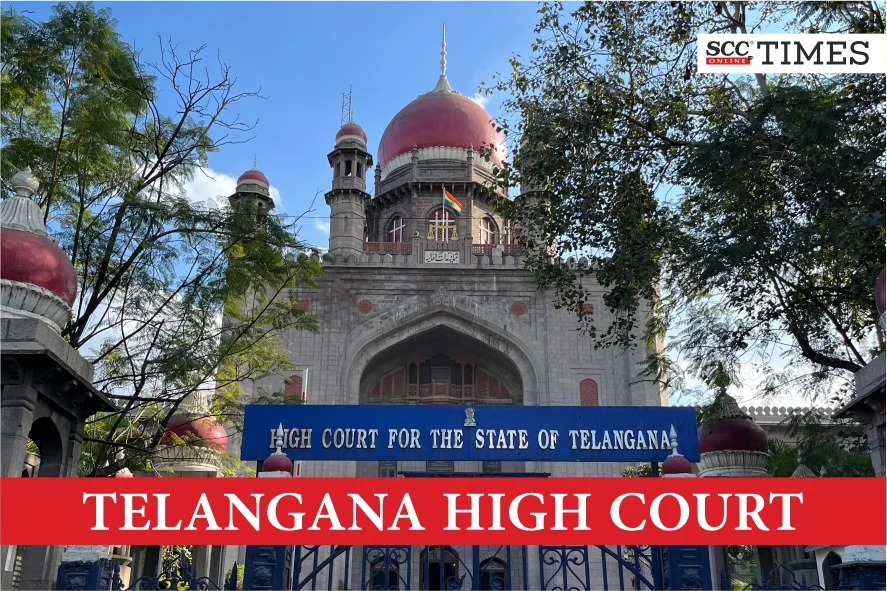Telangana High Court: In a case wherein petitioner assailed the validity of Section 38(2) of the Representation of the People Act, 1951 (‘RPA’), and Rule 5.7.1 of the Handbook for Candidate (‘Handbook’) issued by the Election Commission of India, the Division Bench of Alok Aradhe, C.J., and N.V. Shravan Kumar, J., dismissed the petition and held that the contention that Section 38(2) of RPA treated the equals as unequals could not be accepted and neither Section 38(2) of RPA nor Rule 5.7.1 of the Handbook could be said to be violative of Article 14 of the Constitution.
Background
Petitioner was an Advocate and had taken part in the general elections to the State Legislative Assembly. He had previously filed public interest litigation, challenging the validity of the very same provisions, which was dismissed on 12-02-2024 with the liberty to petitioner to take recourse to the remedy available to him under the law. The petitioner thereafter filed the present writ petition.
Petitioner submitted that Section 38(2) of RPA, which provided for a preferential treatment to be given to the candidates of a political party over the other independent candidates and other candidates belonging to registered unrecognized political parties in the matter of publication of list of contesting candidates, was arbitrary and violative of Article 14 of the Constitution, as all the candidates contesting the election were equal. It was also submitted that Rule 5.7.1 of the Handbook, based on Section 38(2) of RPA, also suffered from the vice of arbitrariness.
Analysis, Law, and Decision
The Court noted that Section 38 of RPA dealt with publication of list of contesting candidates and Rule 5.7 of the Handbook dealt with arrangement of names in the list of contesting candidates. The Court opined that Article 14 of the Constitution was attracted when equals were sought to be treated unequally or unequals were sought to be treated equally. Section 38(2) of RPA, for the purpose of publication of list of contesting candidates, classified the candidates in three categories, (a) candidates belonging to the recognized political parties; (b) candidates belonging to the registered political parties other than those mentioned in clause (a); and (c) other candidates. Thus, Section 38(2) of RPA, for the limited purpose of publication of list of contesting candidates, did not treat the equals as unequals, as the candidates belonging to recognized political parties, registered political parties and independent political parties stand on a different footing.
The Court opined that Section 52 of RPA was amended by the Representation of the People (Amendment) Ordinance, 1992, which provided for countermanding elections on death of a candidate belonging to a political party only. The Court relied on Rama Kant Pandey v. Union of India, (1993) 2 SCC 438, wherein the validity of the aforesaid Ordinance was challenged before the Supreme Court, and it was held that the right to contest the election as a candidate was neither a fundamental right nor a civil right.
Thus, the Court dismissed the petition and held that the contention that Section 38(2) of RPA treated the equals as unequals could not be accepted and neither Section 38(2) of RPA nor Rule 5.7.1 of the Handbook could be said to be violative of Article 14 of the Constitution.
[Pareekshith Reddy Pesarikayala v. Union of India, 2024 SCC OnLine TS 92, Order dated 27-02-2024]
Advocates who appeared in this case:
For the Petitioner: Petitioner in person
For the Respondents: Gadi Praveen Kumar, Deputy Solicitor General of India; Avinash Desai, Senior Counsel representing Mohammed Omer Farooq, Counsel








